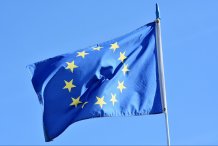articles

A team including experts from the University of Exeter surveyed people in France and Germany in autumn 2019 about their nations’ defence relationships with NATO and the European Union.
Public in France and Germany support a European military, security and defence policy, survey shows
People in France and Germany support building greater European military capacity and security and defence policy, a survey shows.
A majority of citizens in both countries support some European military cooperation independent of NATO, and few believe NATO alone is sufficient for European security and defence, according to the research.
The study suggests few people in France support President Macron’s vision of a French-led European defence co-operation to serve as an alternative to NATO – just about a third of government or main opposition supporters who took part in the survey said they agreed with this.
A team including experts from the University of Exeter surveyed people in France and Germany in autumn 2019 about their nations’ defence relationships with NATO and the European Union.
People in Germany were much more likely to agree that “NATO is essential for national defence” than those in France, particularly those who supported the government or a mainstream opposition party. In France only 38 percent of people who supported the ruling political party saw NATO as essential, and less than 40 percent who identified with the opposition held that view. In Germany, where international alliances are favoured over national military capacity, around half of those who supported the government or a mainstream opposition party thought NATO was essential.
In both nations those who supported far left and far right political parties were the least likely to be in favour of NATO, but even among fringe party voters backing for the organisation was above 25 per cent.
The research team included Dr Catarina Thomson and Professor Jason Reifler from the University of Exeter.
Dr Thomson said: “French politician and voters are more hawkish and more sceptical of NATO and the semi-presidential system that leaves security and defence issues as a prerogative of the president. This means Macron faces fewer domestic constraints than German leaders in trying to re-envision European defence.
“Our analysis shows there is surprisingly wide latitude in both countries to expand European military capability, although Macron probably has more freedom to manoeuvre than German leaders.”
Professor Reifler said: “The French public feel less tied to NATO and more open to other European defence cooperation options, and more sceptical of arrangements that limit the country’s autonomy. In Germany, there is greater support of NATO, which is part of more support generally for international security and defence institutions.”
Less than 20 percent of the public in Germany or France believed NATO was sufficient for European security and defence. Most voters in both countries preferred a “mixed” approach to addressing security problems – military cooperation should be strengthened within NATO and European military cooperation independent of NATO should be created.
Those in Germany were almost twice as likely to answer “it is better to strengthen military cooperation within NATO”, with around 20 per cent agreeing with this statement, while French respondents were more likely to answer “it is better to create European military cooperation independent of NATO”. Almost half of supporters of the governing party, and between 30 per cent and 40 per cent of those who backed other parties, agreed with this statement.
Date: 30 June 2020
